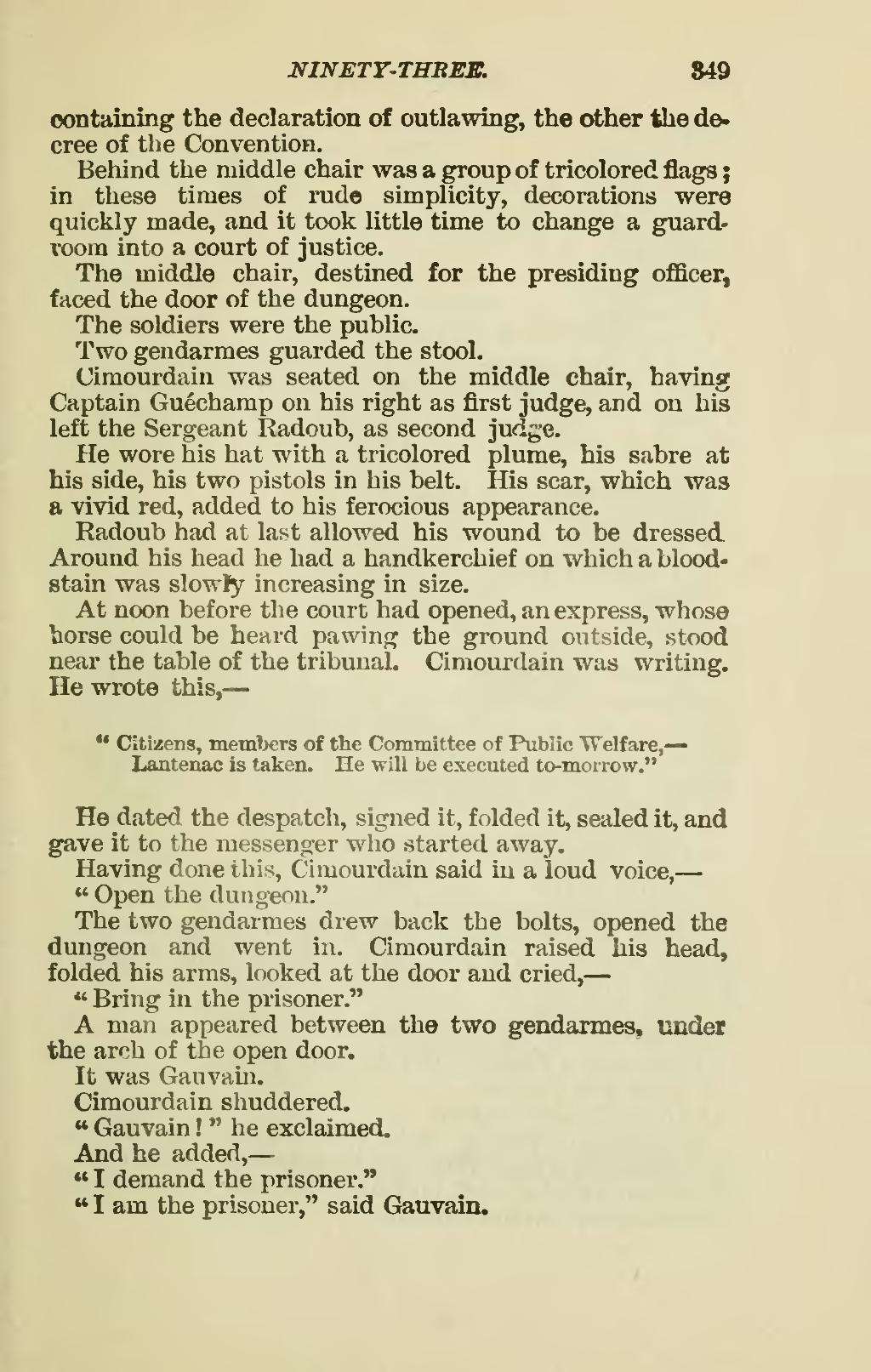containing the declaration of outlawing, the other the decree of the Convention.
Behind the middle chair was a group of tricolored flags; in these times of rude simplicity, decorations were quickly made, and it took little time to change a guardroom into a court of justice.
The middle chair, destined for the presiding officer, faced the door of the dungeon.
The soldiers were the public.
Two gendarmes guarded the stool.
Cimourdain was seated on the middle chair, having Captain Guéchamp on his right as first judge, and on his left the Sergeant Radoub, as second judge.
He wore his hat with a tricolored plume, his sabre at his side, his two pistols in his belt. His scar, which was a vivid red, added to his ferocious appearance.
Radoub had at last allowed his wound to be dressed. Around his head he had a handkerchief on which a bloodstain was slowly increasing in size.
At noon before the court had opened, an express, whose horse could be heard pawing the ground outside, stood near the table of the tribunal. Cimourdain was writing. He wrote this,—
"Citizens, members of the Committee of Public Welfare,—
Lantenac is taken. He will be executed to-morrow."
He dated the despatch, signed it, folded it, sealed it, and gave it to the messenger who started away.
Having done this, Cimourdain said in a loud voice,—
"Open the dungeon."
The two gendarmes drew back the bolts, opened the dungeon and went in. Cimourdain raised his head, folded his arms, looked at the door and cried,—
"Bring in the prisoner."
A man appeared between the two gendarmes, under the arch of the open door.
It was Gauvain.
Cimourdain shuddered.
"Gauvain!" he exclaimed.
And he added,—
"I demand the prisoner."
"I am the prisoner," said Gauvain.
